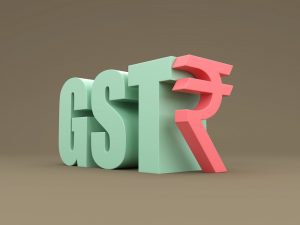 Introduced seven years ago, the Goods and Services Tax (GST) has simplified compliance, improved tax buoyancy and increased states’ revenues, but fake invoices and fraudulent registration remain a big challenge for policymakers trying to curb tax evasion. Rolled out on July 1, 2017, Goods and Services Tax (GST) streamlined 17 taxes and 13 cesses into a 5-tier structure, simplifying the tax regime.
Introduced seven years ago, the Goods and Services Tax (GST) has simplified compliance, improved tax buoyancy and increased states’ revenues, but fake invoices and fraudulent registration remain a big challenge for policymakers trying to curb tax evasion. Rolled out on July 1, 2017, Goods and Services Tax (GST) streamlined 17 taxes and 13 cesses into a 5-tier structure, simplifying the tax regime.
The turnover threshold for registration rose to Rs 40 lakh for goods and Rs 20 lakh for services (up from Rs 5 lakh on average under VAT). GST also reduced 495 different submissions (challan, forms, declarations, etc) across states to just 12.
In seven years, the number of registered taxpayers has risen to 1.46 crore from 65 lakh in 2017. Average monthly GST revenues, soared from around Rs 90,000 crore in 2017-18, to about Rs 1.90 lakh crore in 2024-25.
According to the government data, GST has improved tax buoyancy from 0.72 (pre-GST) to 1.22 (2018-23). Despite compensation ending, state revenues remain buoyant at 1.15.
Without GST, states’ revenue from subsumed taxes from fiscal 2018-19 to 2023-24 would have been Rs 37.5 lakh crore. With GST, states’ actual revenue amounted to Rs 46.56 lakh crore.
The effective weighted average GST rate has consistently fallen since 2017 and GST lowered taxes on many essential items compared to pre-GST rates.
Common items like hair oil and soaps saw tax cut from 28 per cent to 18 per cent. Tax on electrical appliances was lowered to 12 per cent as against 31.5 per cent before.
GST has exempted many essential items and services, such as unbranded food items, certain life-saving drugs, healthcare, education, public transport, sanitary napkins, hearing aid parts, agricultural services, etc. As evaders find newer modus operandi to defraud the exchequer, tax officers have been grappling with generation of fake invoices and fraudulent GST registrations.
In 2023, the Directorate of GST Intelligence (DGGI) detected tax evasion of more than Rs 1.98 lakh crore and arrested 140 masterminds who were involved in defrauding the exchequer. Significant GST evasion was detected in diverse sectors like online gaming, casinos, insurance and secondment (import of manpower services).
The setting up of GST appellate tribunal is expected to streamline and fast-track the dispute resolution process for the industry. However, the principal bench and the state benches of the GSTAT are yet to be operationalised.
Source: The Economic Times


